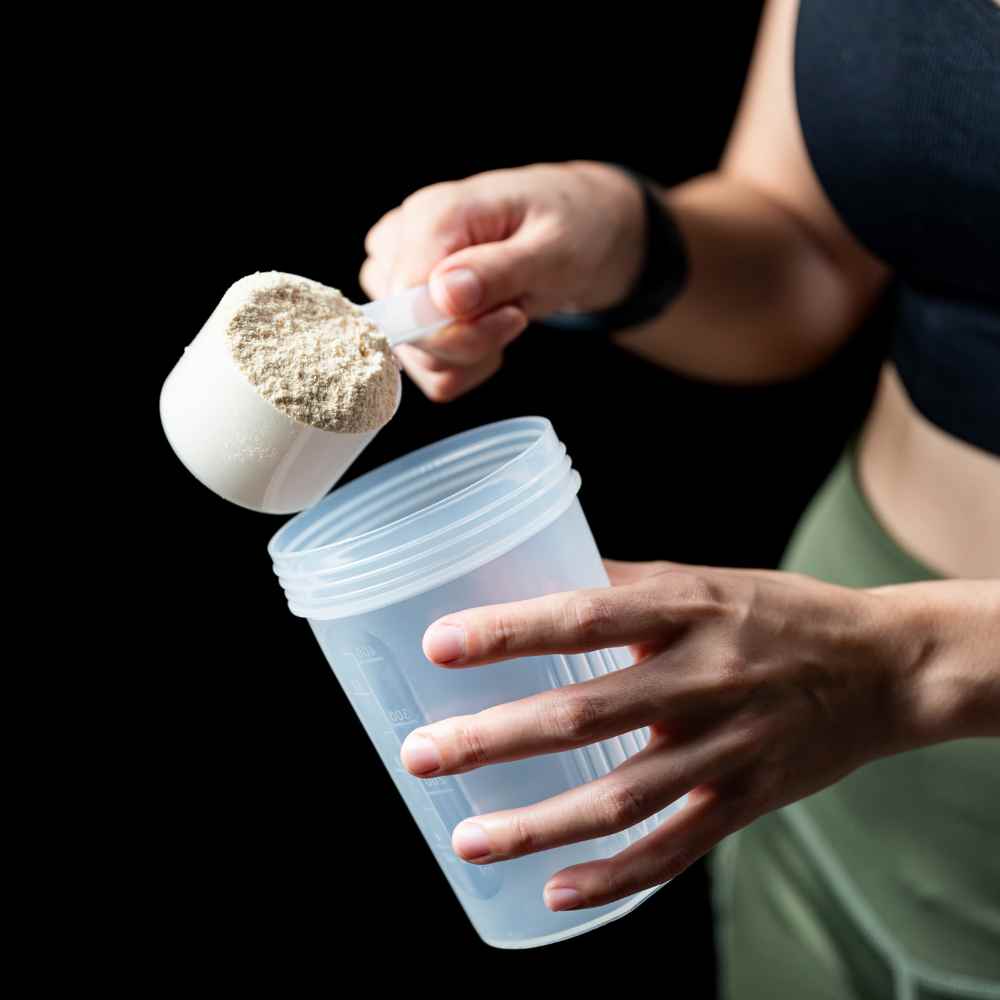
Getting Protein Pimples? Does Whey Protein Cause Acne?
Ever heard that taking whey protein supplements leads to breakouts? It’s a contentious issue, with tons of theories and opinions flying across the internet - but what is the truth behind this rumor?
Does taking whey protein powder cause acne or are you simply being caught up in an all-too-common beauty myth?
In this blog post, we dive into the research - talking to experts and speaking to real life stories - to bring you a definitive answer on whether whey protein does (or doesn’t) cause acne. You won't want to miss it!
The Protein Powerhouse
Whey protein is a type of natural protein derived from the liquid portion of cow’s milk that has been separated from other components during the production of cheese.
It is generally sold in powder form and can be consumed as a supplement or added to food products such as smoothies, soups, and sauces.
Rich in essential amino acids, whey proteins are considered to be one of the most complete proteins available and are commonly used to support muscle growth and repair after exercise or strenuous activity.
Whey protein comes in many forms including whey concentrate, hydrolyzed whey, whey protein isolate, and native whey.
Whey concentrate levels may vary between 30-90% depending on grade with high-grade whey containing 80-90%.
Hydrolyzed or “pre-digested” wheys tend to be more quickly absorbed by the body than regular concentrate forms since some of the bonds between certain amino acids have already been broken. Isolate contains up to 95% pure milk proteins without any lactose.
Native forms are now gaining popularity due to research indicating they retain key beneficial properties during processing that may promote improved health outcomes over isolated versions.
The protein in whey is great for your workout, but what about your skin? Does this protein-packed supplement have a darker side when it comes to your complexion?

The Acne Debate
The idea that the whey protein in your protein shakes could trigger acne stems from the belief that it may increase insulin levels and stimulate the release of insulin like growth factor 1 (IGF-1).
Both insulin and IGF-1 are known to be involved in processes that could contribute to acne development.
The Insulin Influence
Insulin plays a crucial role in regulating blood sugar levels. However, when insulin levels spike—say, after consuming sugary or high-glycemic foods—it can lead to increased production of sebum, the oily substance that can clog pores and contribute to acne.
The IGF-1 Impact
IGF-1 is a hormone that promotes cell growth and division. While it's essential for growth during adolescence, elevated levels of IGF-1 could potentially lead to an overproduction of skin cells, contributing to clogged pores and breakouts.
Navigating the Studies
The relationship between taking a whey protein supplement and having acne isn't cut and dry. While some studies have shown a potential link, others have found no significant connection between whey protein consumption and acne development.
It's important to consider factors such as individual susceptibility, lifestyle, and overall diet.
Your Skin's Unique Story
Keep in mind that not everyone will experience acne as a result of whey protein supplementation. Our bodies are intricate and respond differently to various factors.
If you're prone to acne, it might be worth experimenting with your protein sources to see if there's any noticeable difference.

Whey vs. Plant-Based Protein
If you're concerned about whey protein's impact on your skin, you might consider exploring plant-based protein alternatives.
Options like pea protein, brown rice protein, or hemp protein are becoming increasingly popular and can provide a protein boost without the potential downsides associated with dairy-based whey.
Balancing Act
If you're a whey protein concentrate enthusiast who wants to build muscle mass and haven't noticed any negative impact on your skin, there's likely no need to worry.
However, if you've noticed an increase in breakouts coinciding with whey protein consumption, it could be worth experimenting with different protein sources to see if there's a change.
Additional Tips for Skin Health
Whether you're sticking with protein calorie supplements or exploring other options, there are several general practices that can help maintain healthy skin. Doing the following will help keep breakouts away, especially if you suffer from acne prone skin.
Stay Hydrated
Drinking enough water is not only important for your overall health, but it also benefits your skin in many ways.
Firstly, when you’re dehydrated, your body produces more oil to compensate for the lack of moisture. As a result, your pores can become clogged and lead to acne. But, by drinking plenty of water, you can keep your skin hydrated and reduce the amount of oil your body produces.
Furthermore, water helps to flush out toxins from your body, and this includes the toxins that can cause acne. Drinking enough water also improves blood circulation, delivering essential nutrients to your skin and helping it to heal and rejuvenate itself more effectively.
In fact, studies have shown that drinking water can improve skin elasticity, leading to a firmer and more youthful-looking complexion. So, if you want to keep your skin looking its best, make sure you drink at least eight glasses of water a day.

Maintain a Balanced Diet
Maintaining a balanced diet along with taking dietary supplements can significantly help to prevent and reduce acne breakouts. Eating a diet rich in antioxidants, vitamins, and minerals is essential for skin health.
Antioxidants, such as Vitamin C, are crucial in fighting against oxidative stress, which can contribute to inflammation and acne.
Vitamin A, found in foods like sweet potatoes and spinach, can help regulate cell turnover and reduce oil production, which can minimize clogged pores.
Minerals like zinc also play a vital role in controlling inflammation and reducing sebum production.
Consuming a diet that incorporates these essential nutrients can help to maintain healthy skin and reduce the likelihood of developing acne.
Additionally, avoiding processed foods and sugar can limit inflammation and reduce hormone imbalances, both of which can contribute to acne development.
By making conscious choices and prioritizing a balanced diet, you can significantly alleviate your acne symptoms and improve overall skin health.
Practice Good Skincare
Practicing a good skincare routine is essential for maintaining healthy skin and can directly impact the occurrence and severity of acne.
Skincare routines that involve gentle cleansing, toning, and moisturizing can effectively remove excess oil, dirt, and dead skin cells from the skin's surface, unclogging pores and preventing the formation of acne.
Using spot treatment products containing salicylic acid or benzoyl peroxide can help break down and kill acne-causing bacteria, reducing inflammation and preventing new breakouts from forming.
Additionally, incorporating non-comedogenic, oil-free products into a skincare routine, along with protecting the skin from the sun, can help prevent acne and address any hyperpigmentation or acne scarring that may arise.
Consistency is key, and sticking to a daily skincare routine can significantly improve the overall condition of the skin, reducing the likelihood of experiencing frequent breakouts.
Whey Protein: The Bottom Line
The question of whether whey protein causes acne doesn't have a one-size-fits-all answer. While some individuals might experience breakouts in response to whey protein consumption, others may not notice any adverse effects.
Listen to your body, pay attention to how your skin reacts, and consider exploring alternative protein sources if you suspect a link between whey protein and acne for yourself.
Remember, everyone's skin is unique, and finding what works best for you is key to maintaining both your fitness gains and your radiant complexion!

















